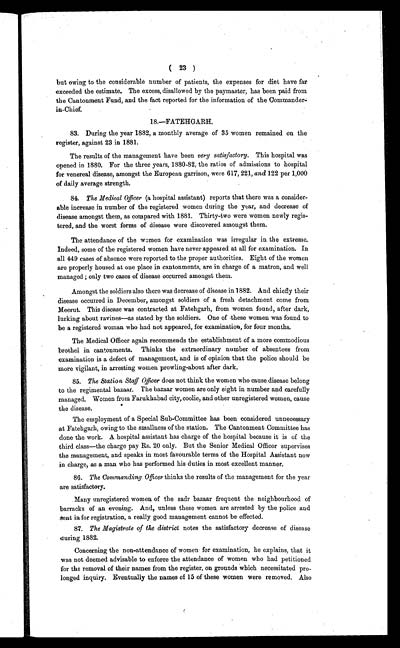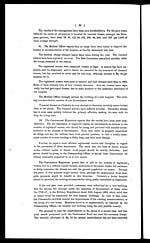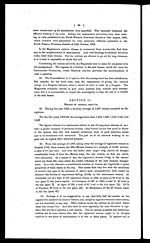Medicine - Institutions > Lock hospitals > Annual report on the working of the lock hospitals in the North-Western Provinces and Oudh > 1882
(333) Page 23
Download files
Individual page:
Thumbnail gallery: Grid view | List view

( 23 )
but owing to the considerable number of patients, the expenses for diet have far
exceeded the estimate. The excess, disallowed by the paymaster, has been paid from
the Cantonment Fund, and the fact reported for the information of the Commanderin-
Chief.
18.—FATEHGARH.
83. During the year 1882, a monthly average of 35 women remained on the
register against 23 in 1881.
The results of the management have been very satisfactory. This hospital was
opened in 1880. For the three years, 1880-82, the ratios of admissions to hospital
for venereal disease, amongst the European garrison, were 617, 221, and 122 per 1,000
of daily average strength.
84. The Medical Officer (a hospital assistant) reports that there was a consider-
able increase in number of the registered women during the year, and decrease of
disease amongst them, as compared with 1881. Thirty-two were women newly regis-
tered, and the worst forms of disease were discovered amongst them.
The attendance of the women for examination was irregular in the extreme.
Indeed, some of the registered women have never appeared at all for examination. In
all 449 cases of absence were reported to the proper authorities. Eight of the women
are properly housed at one place in cantonments, are in charge of a matron, and well
managed ; only two cases of disease occurred amongst them.
Amongst the soldiers also there was decrease of disease in 1882. And chiefly their
disease occurred in December, amongst soldiers of a fresh detachment come from
Meerut. This disease was contracted at Fatehgarh, from women found, after dark,
lurking about ravines—as stated by the soldiers. One of these women was found to
be a registered woman who had not appeared, for examination, for four months.
The Medical Officer again recommends the establishment of a more commodious
brothel in cantonments. Thinks the extraordinary number of absentees from
examination is a defect of management, and is of opinion that the police should be
more vigilant, in arresting women prowling-about after dark.
85. The Station, Staff Officer does not think the women who cause disease belong
to the regimental bazaar. The bazaar women are only eight in number and carefully
managed. Women from Farukhabad city, coolie, and other unregistered women, cause
the disease.
The employment of a Special Sub-Committee has been considered unnecessary
at Fatehgarh, owing to the smallness of the station. The Cantonment Committee has
done the work. A hospital assistant has charge of the hospital because it is of the
third class—the charge pay Rs. 20 only. But the Senior Medical Officer supervises
the management, and speaks in most favourable terms of the Hospital Assistant now
in charge, as a man who has performed his duties in most excellent manner.
86. The Commanding. Officer thinks thse results of the management for the year
are satisfactory.
Many unregistered women of the sadr bazaar frequent the neighbourhood of
barracks of an evening. And, unless these women are arrested by the police and
sent in for registration, a really good management cannot be effected.
87. The Magistrate of the district notes the satisfactory decrease of disease
during 1882.
Concerning the non-attendance of women for examination, he explains, that it
was not deemed advisable to enforce the attendance of women who had petitioned
for the removal of their names from the register, on grounds which necessitated pro-
longed inquiry. Eventually the names of 15 of these women were removed. Also
Set display mode to: Large image | Zoom image | Transcription
Images and transcriptions on this page, including medium image downloads, may be used under the Creative Commons Attribution 4.0 International Licence unless otherwise stated. ![]()
| India Papers > Medicine - Institutions > Lock hospitals > Annual report on the working of the lock hospitals in the North-Western Provinces and Oudh > 1882 > (333) Page 23 |
|---|
| Permanent URL | https://digital.nls.uk/75111870 |
|---|




